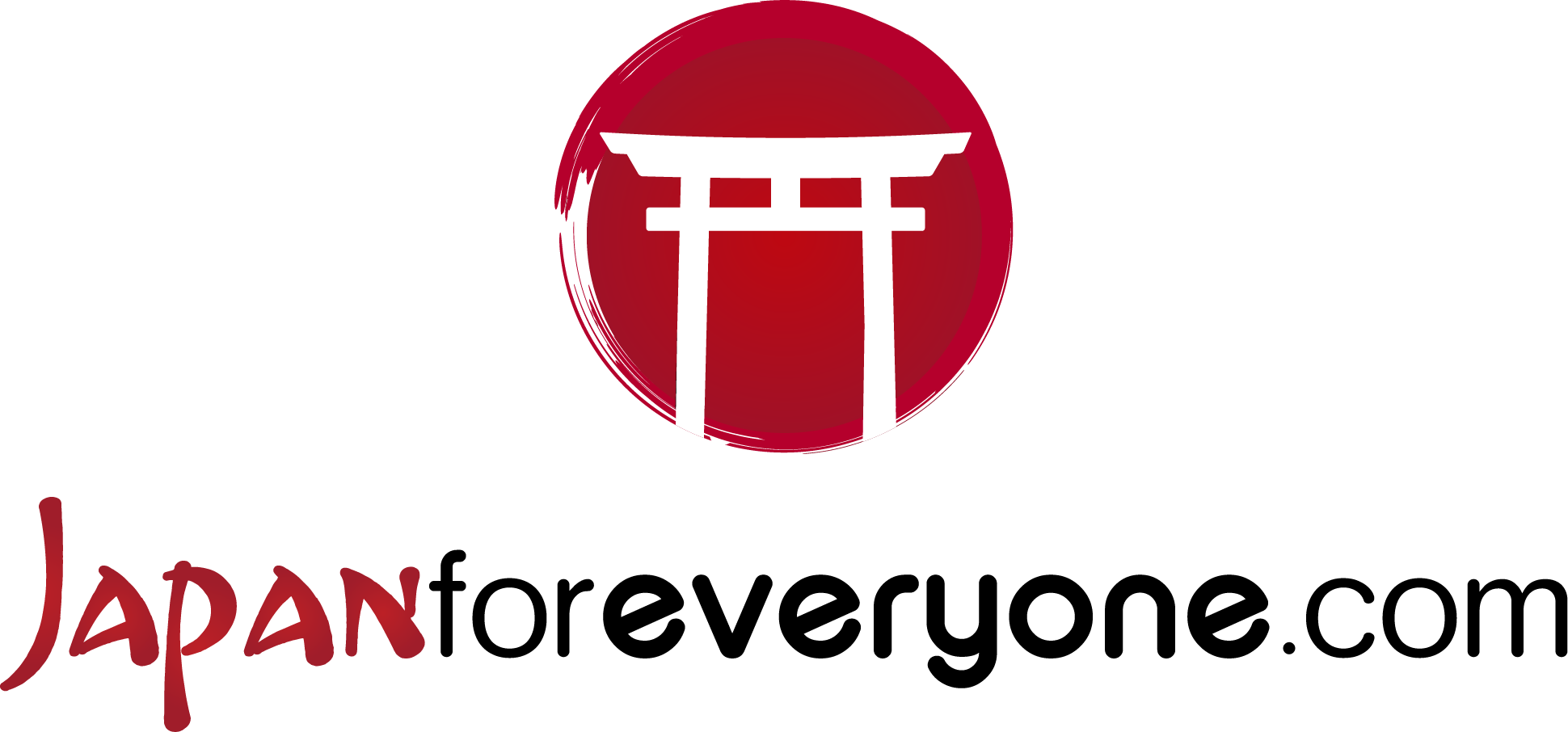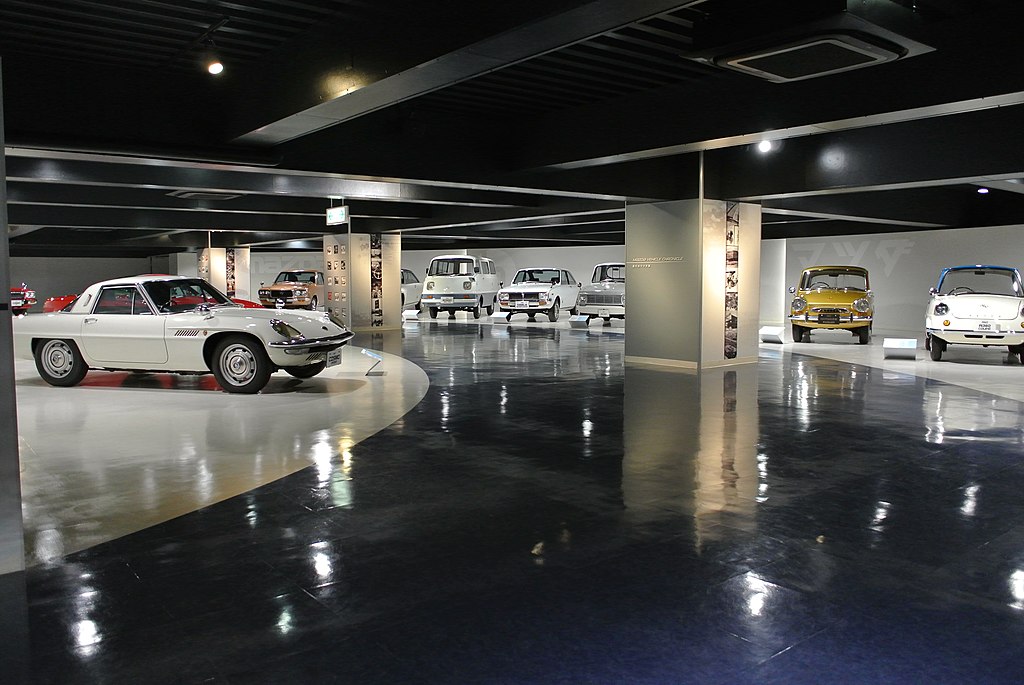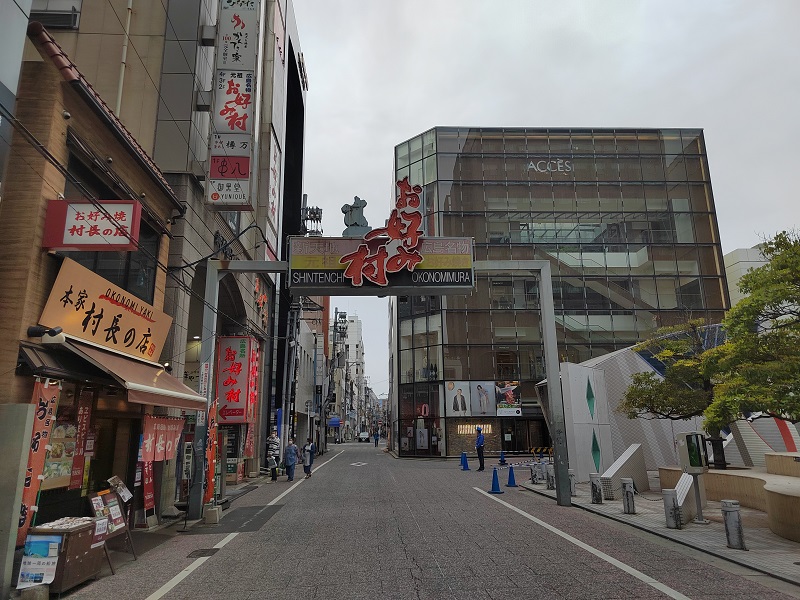What to do in Hiroshima
Hiroshima is world famous for the dropping of the first atomic bomb in history. The Memorial Park and the Peace Museum were created to commemorate this event. The symbol of the city is the A-Bomb Dome, one of the few buildings left standing after the bomb blast. The building has been declared a UNESCO World Heritage Site.
Also worth seeing is the nearby island of Miyajima, famous for its red Torii in the ocean.
To get around you can use the JR Loop Bus (free with the Japan Rail Pass).
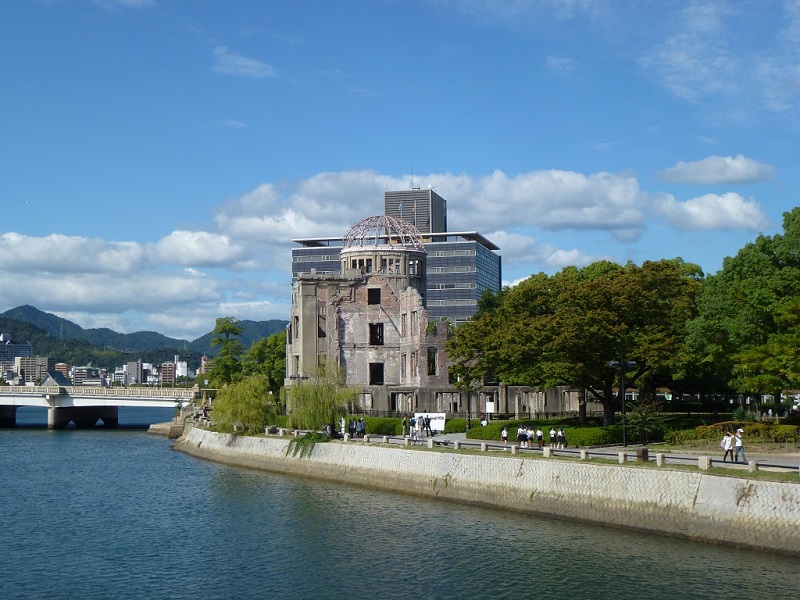
Photo by Japanforeveryone.com
The Memorial Park, the Peace Museum and the A-Bomb Dome are three sites in Hiroshima that commemorate the tragic story of the atomic bomb explosion on 6 August 1945. The park houses various monuments, including a Peace Statue and a memorial to the victims.
The Peace Museum offers a deep immersion into the city’s history and grief, with exhibits documenting the event and its aftermath.
The A-Bomb Dome is a building that was left untouched after the explosion, becoming a monument for peace. Together, these sites remind us of the need for lasting peace and the elimination of nuclear weapons.
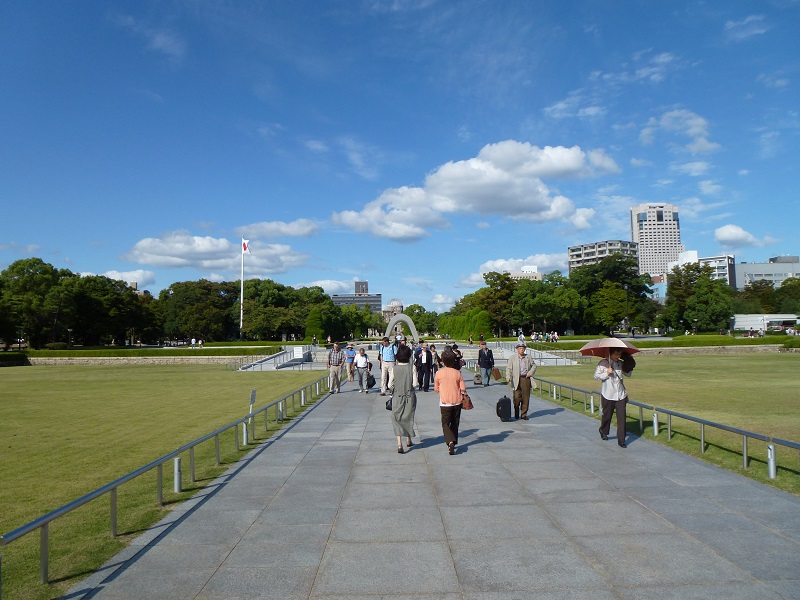
Photo by Japanforeveryone.com
Practical information
| Peace Memorial Park | |
| View location on Google Maps | |
| A-Bomb Dome | |
| View location on Google Maps | |
| Peace Museum | |
| View location on Google Maps | |
| Official website |
|
| 8:30-18:00 (March to July and September to November) 8:30-19:00 (August, until 20:00 on 5 and 6 August) 8:30-17:00 (December to February) Last admission 30 minutes before closing time |
|
| 30 and 31 December | |
| 200 Yen | |
| Get off at the Genbaku Dome-mae tram stop (Atomic Bomb Dome) From the train station, take line 2 or 6 From Miyajima-guchi take line 2 From Nishi-Hiroshima take line 2 or 3 35 minutes walk from the train station (3 km) 30 minutes’ walk from Nishihiroshima train/tram station (2.5 km) By JR Loop Bus take the orange, yellow or green line and get off at The Atomic Bomb Dome stop or The Peace Memorial Park stop |
The Mazda Museum in Hiroshima is a must-see for car enthusiasts. Located near the company’s headquarters, the museum offers a retrospective on the history of Mazda and its iconic models.
Visitors can admire a variety of historic vehicles, explore technological innovations and discover the production process. This museum offers a unique interactive experience, allowing visitors to get up close and personal with the engineering and passion that drives the Japanese car company.
菅野崇, CC BY-SA 3.0, via Wikimedia Commons
Practical information
| View location on Google Maps | |
| Official website |
|
| Tours in English start at 10:00 and last approximately 90 minutes. | |
| On weekends and public holidays | |
| Free of charge. Reservation by phone or email to this link | |
| Take a local train from JR Hiroshima Station (5 minutes) and get off at JR Mukainada Station. From here continue on foot for 5 minutes |
Shukkeien is a 47,000 square metre Japanese garden located beside the Kyobashi River, about 600 metres east of Hiroshima Castle. Built in 1620 as part of a villa for the feudal lord Asano Nagaakira, the garden is more than 400 years old. This beautiful garden depicts mountains, valleys and forests in miniature, offering a serene and atmospheric experience. It is a must-see for lovers of nature and Japanese culture.
Fg2, Public domain, via Wikimedia Commons
Practical information
| View location on Google Maps | |
| Official website |
|
| 9:00-18:00 (until 17:00 from October to March) Last admission 30 minutes before closing |
|
| 29 to 31 December | |
| 260 Yen | |
| 15 minutes’ walk west of the station
5 minutes’ walk east from the Shukkeien-mae tram stop on line 9. By JR Loop Bus take the orange or yellow line if arriving from JR Station or take the green line if arriving from Memorial Park and get off at the Hiroshima Prefectural Art Museum (Shukkeien) stop |
Hiroshima Downtown
Hiroshima Downtown is the beating heart of the city of Hiroshima. This lively pedestrian area is famous for its trendy shops, restaurants and bars. It is the ideal place to immerse yourself in Japanese folk culture, with shops offering traditional handicrafts and souvenirs. For food lovers, there are numerous restaurants serving local specialities such as okonomiyaki, Hiroshima’s regional dish.
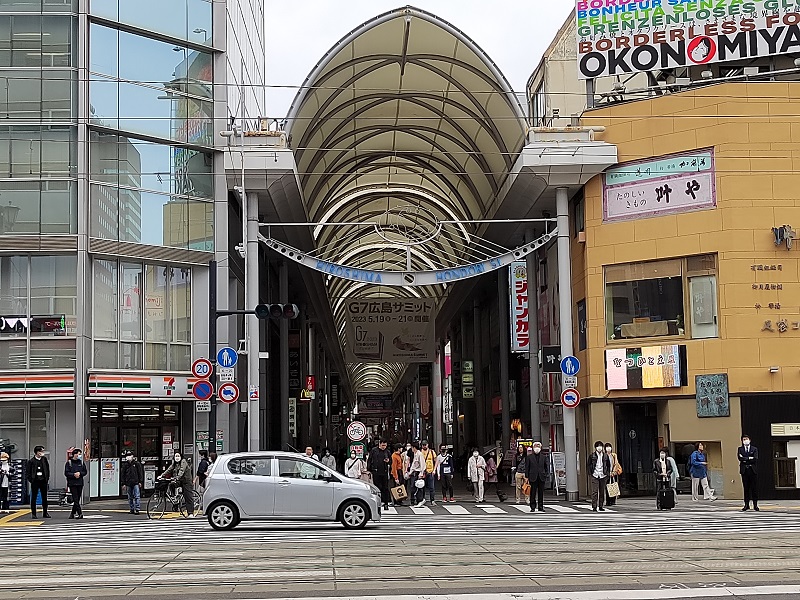
Photo by Japanforeveryone.com
Practical information
| View location on Google Maps | |
| 20 minutes’ walk west of the station.
East entrance near the Hocchobori tram stop (lines 1, 2 and 6) By JR Loop Bus take the orange, yellow or green lines and get off at the Kamiya-cho stop |
Hiroshima Castle is a majestic structure dating back to the 16th century. Although much of the original castle was destroyed during the atomic bombing in 1945, it was subsequently rebuilt and now serves as a historical museum.
Inside you can admire exhibits and period objects that tell the story of the castle and the city. The panoramic view from the main tower offers a spectacular panorama of Hiroshima. Hiroshima Castle is an important landmark for the city and a must-see place for visitors.
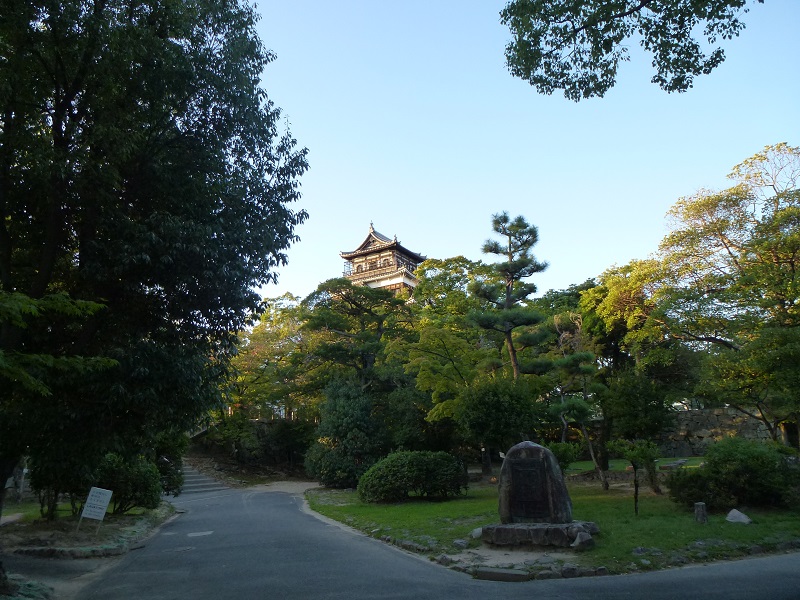
Photo by Japanforeveryone.com
Practical information
| View location on Google Maps | |
| Official website |
|
| Main Palace: 9:00-18:00 (until 17:00 on weekdays from December to February, until 19:00 on Golden Week and Obon holidays) Ninomaru: 9:00-17:30 (until 16:30 from October to March) Last admission 30 minutes before closing time |
|
| 29 to 31 December (Main Palace) 29 December to 2 January (Ninomaru) |
|
| 370 Yen (main building) Free for the rest of the complex |
|
| 15 minutes’ walk north from Kamiyacho tram stop (lines 1, 2 and 6) 20 minutes’ walk north from Memorial Park 25 minutes’ walk west from JR Station With the JR Loop Bus, take the orange or yellow line and get off at the Hiroshima Castle (Hiroshima Gokoku Shrine) stop |
